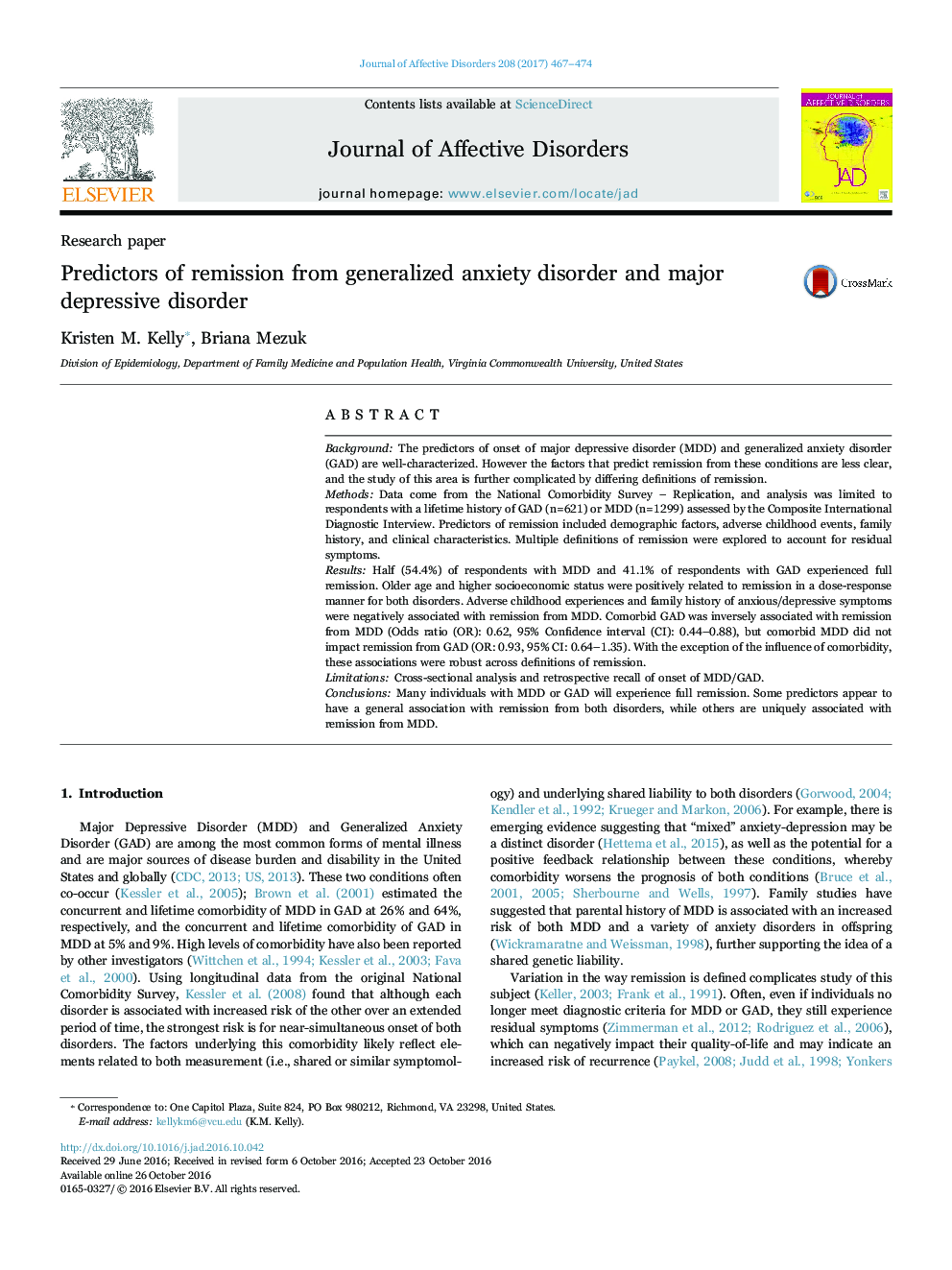| کد مقاله | کد نشریه | سال انتشار | مقاله انگلیسی | نسخه تمام متن |
|---|---|---|---|---|
| 5722115 | 1608117 | 2017 | 8 صفحه PDF | دانلود رایگان |
- Approximately 54.4% of adults with a history of MDD, 41.1% with a history of GAD, and 30.9% with comorbid MDD-GAD experienced remission.
- Shared predictors of greater likelihood of remission from MDD and GAD were older age and higher socioeconomic status.
- Childhood adversity, family history of anxious or depressive symptomology, and childhood onset were negatively associated with remission from MDD.
- Comorbid GAD was associated with lower likelihood of remission from MDD, but comorbid MDD did not impact likelihood of remission from GAD.
- Findings remained broadly consistent across multiple definitions of remission.
BackgroundThe predictors of onset of major depressive disorder (MDD) and generalized anxiety disorder (GAD) are well-characterized. However the factors that predict remission from these conditions are less clear, and the study of this area is further complicated by differing definitions of remission.MethodsData come from the National Comorbidity Survey - Replication, and analysis was limited to respondents with a lifetime history of GAD (n=621) or MDD (n=1299) assessed by the Composite International Diagnostic Interview. Predictors of remission included demographic factors, adverse childhood events, family history, and clinical characteristics. Multiple definitions of remission were explored to account for residual symptoms.ResultsHalf (54.4%) of respondents with MDD and 41.1% of respondents with GAD experienced full remission. Older age and higher socioeconomic status were positively related to remission in a dose-response manner for both disorders. Adverse childhood experiences and family history of anxious/depressive symptoms were negatively associated with remission from MDD. Comorbid GAD was inversely associated with remission from MDD (Odds ratio (OR): 0.62, 95% Confidence interval (CI): 0.44-0.88), but comorbid MDD did not impact remission from GAD (OR: 0.93, 95% CI: 0.64-1.35). With the exception of the influence of comorbidity, these associations were robust across definitions of remission.LimitationsCross-sectional analysis and retrospective recall of onset of MDD/GAD.ConclusionsMany individuals with MDD or GAD will experience full remission. Some predictors appear to have a general association with remission from both disorders, while others are uniquely associated with remission from MDD.
Journal: Journal of Affective Disorders - Volume 208, 15 January 2017, Pages 467-474
